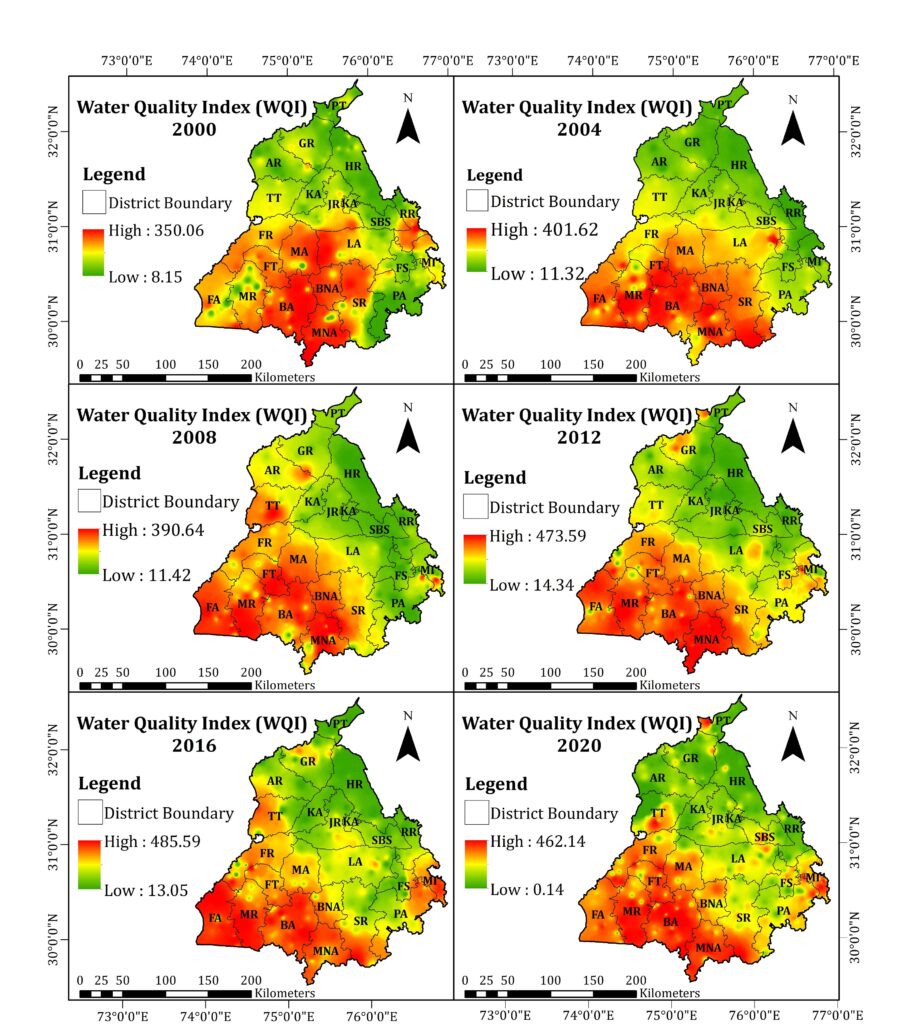
A research team of Indian Institute of Technology (IIT) Mandi has made startling findings about the quality of ground water in Punjab, revealing high levels of contamination in the groundwater leading to several health hazards including risk of cancer.
The study aimed to track changes in drinking water quality in Punjab from 2000 to 2020 carried by Dr. Dericks Praise Shukla, Associate Professor, School of Civil and Environmental Engineering of IIT Mandi and his research associate Harsimranjit Kaur pursuing her PhD and hailing from Punjab, has derived concerning insights into human activity-induced groundwater pollution, particularly through agricultural runoff in Punjab.
The researchers have found,” The health hazard trends linked to nitrate and fluoride present in the ground water pinpoints to regions with poor quality of ground water in southwestern region of Punjab where cases of cancer have increased rapidly during the past sometime.”
Telling about the study, Dr Shukla said, “We aimed to assess how groundwater quality for drinking purposes changed from 2000 to 2020 at different places. It also sought to examine ten-year trends in health hazards associated with contaminants like nitrate and fluoride, along with identifying regions with notably subpar groundwater quality.”
He said, “The prolific agricultural activity in Punjab, especially after the Green Revolution, has seen a shift in cropping pattern over the last half century and growth in agriculture production has come at a cost of alarming groundwater contamination and as the state grew in Bread Bowl of India as the same time it is becoming Cancer Capital of the country.”
The research has found, “Intensive agricultural practices have resulted in severe groundwater exploitation as over 74 percent of irrigation requirement is being fulfilled through groundwater leading to depth of ground water level and making it toxic.”
The findings of the research have been published in the journal Environmental Science and Pollution Research and have been based on measurement of pH, electric conductivity (EC), and various ions from over 315 sites in Punjab.”

